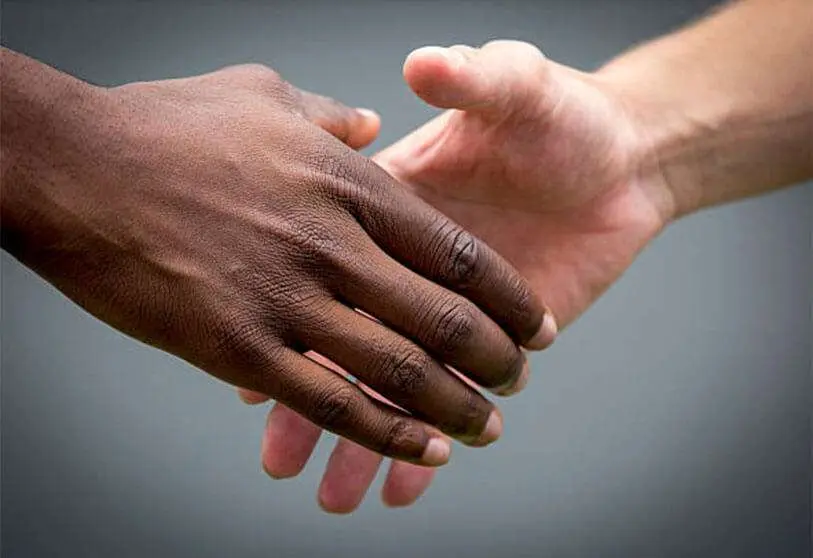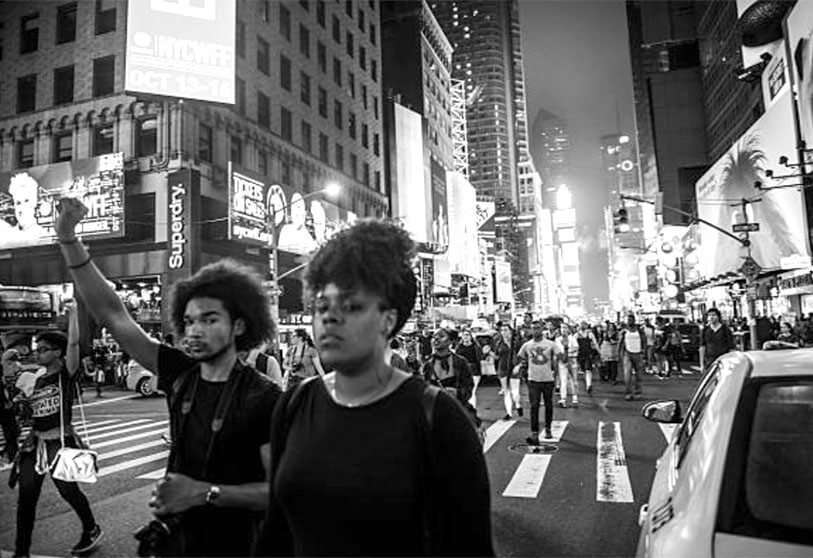Now that we're no longer racist

In Ancient Greece, beyond the city-state, everyone was a barbarian, a human being, but remarkably inferior.
Jesus never liked the nickname of "messiah" with which he was identified by his followers, he preferred to call himself "son of man" because we are all "sons of man", in this case of the same woman, our mitochondrial Eve which we do not doubt her beauty because she brought us into the world and no son says that his mother is ugly. Black, because her skin wasn't tan, but black. Probably "broad-boned" (as they say), with accentuated forehead, sunken eyes, facial features closer to chimpanzees than to humans, small brain around 435 cm3, long joints and not yet walking upright with wide hips, because around 3 million years ago women gave birth standing up.
And that "black" woman gave us all life near Lake Turkana in the Horn of Africa, the cradle that saw us born and from which we set off on our greatest adventure, to discover the planet. I tell this story because many people believe that we "came" into the world as white as milk, blond as sunflowers, tall as reeds, with designed noses and even freckles to embellish us.
The Royal Spanish Academy says about racism: "Exacerbation of the racial sense of an ethnic group that usually motivates the discrimination or persecution of another or others with whom it coexists". Clinical psychologist Phyllis A. Katz, who spent her professional career researching how children acquire attitudes toward race, defined racism as "the unequal treatment of individuals because of their membership in a particular group," while Dalmas A. Taylor, who wrote together with Katz Eliminating Racism: Profiles in Controversy, defined racism as "the cumulative effect of individuals, institutions and cultures that results in the oppression of ethnic minorities. For T.M. Willemsen, racism is a "philosophy that expresses the superiority of one race over another," and in that philosophy Nazism was framed "to affirm the superiority of the Aryan race and to endow itself with historical, cultural and natural legitimacy.
In the words of Michael Wieviorka, referring to Ruth Benedict, who in 1942 argued in Race and Racism that "race is a classification based on hereditary traits that constitute a field of scientific investigation, while racism is a dogma contrary to any scientific demonstration". The geneticist Alberto Piazza explains it well when he says: "the study of genetic diversity teaches us above all the history of the geography of populations," which makes race "a concept without any biological foundation".

It focuses on this term on the inter-war period, which was a model of persecution at the end of World War II with the adverse anti-Semitic policies. It is shocking that last year, 75 years after the war, there was a significant increase in attacks on Jewish communities, so that 2019 will pass into history as one of the years with the highest number of anti-Semitic attacks.
It is honest to say that the term emerged long before its designation, based on the willingness to label everything to serve one another and to supply our needs. It is tempting to think that our increased individualism, impaired and accentuated by an unhealthy ability to compete, makes us forget that today, in the 21st century, we are still not "equal" before justice, society, culture and the world at large. It is at least curious that "I can't breathe" has become a weapon, a puppet of the citizenry dancing to the beat of politics. It is at the very least disappointing and humiliating that we are confronted with statues to cover our remorse. Some, even daring the film industry, want to make us forget what we are, how ridiculous we can become as a species.
Now that we are no longer racist, we do not need to kneel down before anyone, we do each other a disservice by doing so. Now, that we are no longer racist, we can go to the Chinese man near our house that we have been going to and we don't even know his name yet, because he is the Chinese man. Now that we are no longer racist, we can hire a gypsy to work, because we have never done it in case he stole from us. Now that we are no longer racist, we can talk to the Romanian woman who takes her children to the park where you also take yours, because she is also a mother.
Now that we are no longer racist, we can have a chat with the top manta vendor from whom you buy your sunglasses for 3 euros, because we no longer have to haggle over the price. Now that we are no longer racist, we can normally appreciate that our son is marrying the Indian woman he met in class, because it is legitimate to fall in love. Now that we are no longer racist, we no longer need to look down on the little Moorish girl who wears a veil, because she too is inspired by faith.
Now that we are no longer racist, we can say gypsy, Moor, Romanian, Indian, Jew or black without any derogatory and offensive character, now that we are free of sin. Now that we are no longer racist, we do not need to kneel down, we are all ready to return to the Horn of Africa, the cradle where we were born.
Lidia Fernández. Graduated as a historian and a journalist from the Rey Juan Carlos University, and as an expert in Emotional Intelligence and Non-Verbal Communication from the Camilo José Cela University
